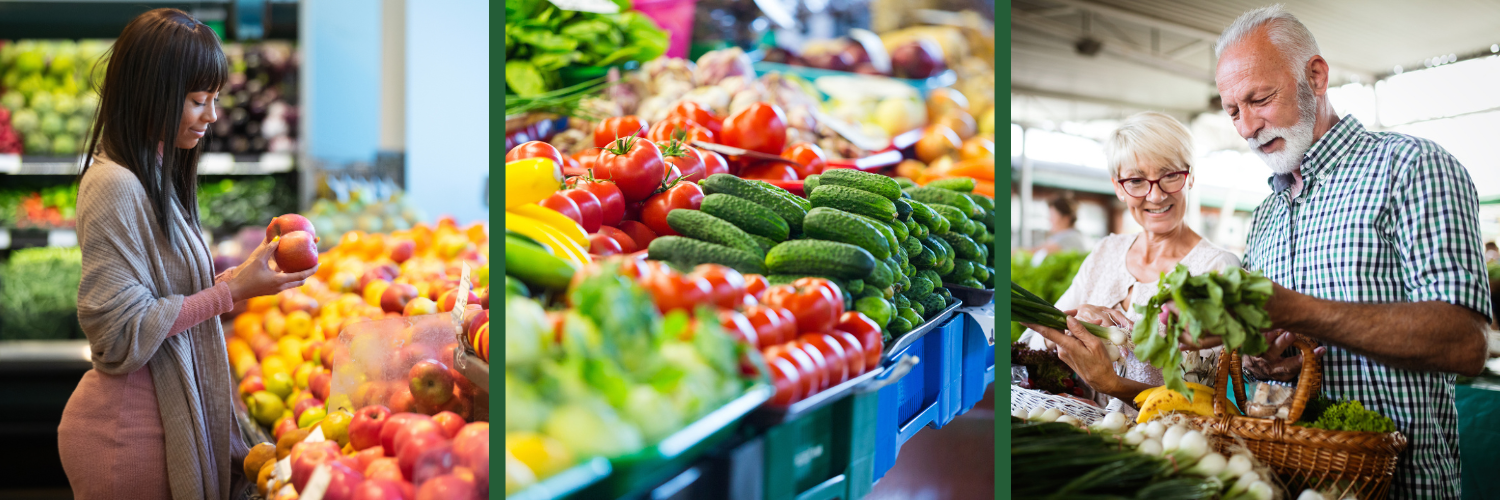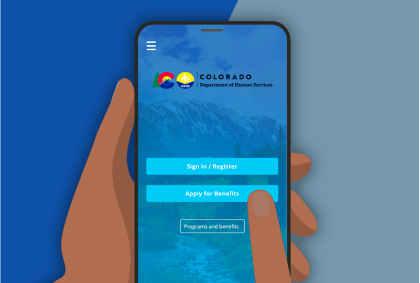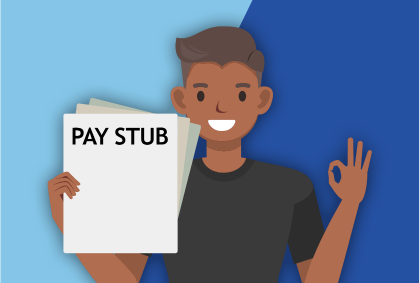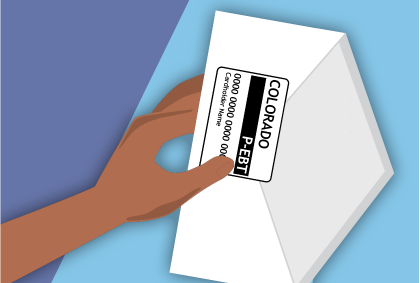Supplemental Nutrition Assistance Program (SNAP)

The Supplemental Nutrition Assistance Program (SNAP) helps low-income households purchase food. Families and individuals can receive a monthly benefit to buy healthy food. They can double their benefits value by shopping at participating vendors that support the Double Up Food Bucks program.

How it works
Each county’s human services department is responsible for determining eligibility and authorizing SNAP benefits.
SNAP eligibility is based on income, resources and household size. Benefits are provided through an Electronic Benefit Transfer (EBT) card. These can be used like a debit card at participating food stores.
As a SNAP recipient, you can receive discounts on admission at many museums and cultural centers throughout Colorado. Just show your EBT card when you buy tickets at participating locations. View a list of participating locations.
Need help?
Contact the SNAP support line. As a SNAP recipient or applicant, you can receive real-time information about your benefits and case status, and receive general SNAP updates.

Looking for EBT support?
Keep your EBT card safe. Fraudulent use of EBT cards can be avoided in several ways.
- Be on the lookout for card-skimming devices at the point of sales
- Change your EBT PIN frequently
- When not in use, freeze EBT cards to block unwanted transactions
If you suspect your EBT card has been compromised contact your county human services office immediately.
Learn more about using your EBT card.
Who is eligible?
You may qualify for SNAP benefits if you:
- Make low wages
- Have an income less than 200% of the Federal Poverty Level (FPL) as shown in the table
- Are unemployed or work part-time
- Receive other assistance payments like Colorado Works, Supplemental Security Income, etc.
- Are a child
- Are a student
- Are an adult between 18 and 56 with no children in your home (known as ABAWDs, or able-bodied adult without dependents)
View the income limits table to determine eligibility based on your household size. (Note: These values were last updated on Oct. 1, 2024.)
You can also check your eligibility with the pre-screening tool on the Colorado PEAK website.
Income limits based on household size
| Household size | Gross monthly income limits |
|---|---|
| 1 | $2,610 |
| 2 | $3,526 |
| 3 | $4,442 |
| 4 | $5,360 |
| 5 | $6,276 |
| 6 | $7,192 |
| 7 | $8,110 |
| 8 | $9,026 |
| Each additional member (add) | +$918 |
- Notice: Work requirements for individuals receiving SNAP who are aged 50 to 54 have changed
With the passage of the Fiscal Responsibility Act in June, the federal government has changed the work requirements for SNAP recipients who are considered able-bodied adults without dependents (ABAWDs). The change went into effect on Oct. 1, 2023. Read our FAQ for more information.
How to apply
There are many ways you can apply for SNAP benefits.
Online
Apply online through the Colorado PEAK website.
Mobile app
Use the MyCOBenefits app on your smartphone. Available for iOS and Android.
Paper application
Fill out a paper application (also available in Spanish, large-print English, and large-print Spanish) and mail, fax or return in person to your county human services office.
Get help
Contact Hunger Free Colorado at 855-855-4626. View other outreach partners that can provide application assistance.
Documents needed for applying
Applications should be as complete as possible, as this may speed up processing.
- Proof of income
- 30 days of earned income (pay stubs, employer statement that includes pay per hour and hours per week, etc.)
- If self-employed, bookkeeping records.
- Agency letter showing unearned income (Social Security Retirement or Disability income, Supplemental Security Income (SSI), Veterans Affairs (VA) pension or disability benefits, Unemployment, child support, alimony, private retirement, etc.)
- Proof of identity
- Driver license or state-issued identification card
- Birth certificate or Social Security card
- Work or school identification card
- Voter registration card
- Proof of medical expenses (only if over 60 or disabled)
- Billing statements or repayment agreements
- Medicare card, indicating Part B
- Mileage or transportation costs to/from medical appointments
- Itemized receipts for medical expenses (prescription drugs, medical supplies, etc.)
What to expect
After you submit your application your county human services office has 30 days to determine your eligibility.
You may be eligible for expedited SNAP benefits within 7 days if you have less than $100 in cash and less than $150 in monthly earnings, or if your housing expenses exceed your monthly income or if you are a migrant or seasonal farm worker.


You may be asked for a phone interview or can request an interview in person if preferred.
If an interview is needed, the county human services office may:
- Attempt to call you at the phone number you provided in your application.
- If they are unable to reach you by phone, you will receive a mail notice for a scheduled interview.
- The notice will include details like your interview date and time and how to reschedule your interview if needed.
You may need to provide documents verifying your situation. You can provide them in the following ways:
- Upload them to your PEAK account on colorado.gov/PEAK
- Upload them to your MyCOBenefits application on your mobile device
- Provide them to your county human services office location
- Mail them to the mailing address on your county’s letterhead or website


You will receive your EBT card (also known as the Colorado Quest Card) by mail or in person.
You can now use your EBT card at any authorized store across the country that has the EBT or Quest card logo. Funds are accessed by using a personal identification number (PIN) set by the cardholder. Visit the EBT site for more information on using your card and keeping your benefits safe.
Frequently asked questions
- How much aid could I receive?
The table below shows current maximum monthly SNAP allotments, based on household size. Note: The values below have been updated to reflect SNAP increases on Oct. 1, 2024.
Maximum monthly SNAP allotments based on household size
Household size Maximum monthly allotment effective October 1, 2024 1 $292 2 $536 3 $768 4 $975 5 $1,158 6 $1,390 7 $1,536 8 $1,756 Each additional person (add) +$23
- What foods can I buy?
The SNAP program allows you to buy any food for the household, such as:
- Breads and cereals
- Fruits and vegetables
- Meats, fish and poultry
- Dairy products
- Seeds and plants which produce food for the household to eat
- Soft drinks, candy, cookies, snack crackers, and ice cream
- Seafood, steak, and bakery cakes are also food items and are therefore eligible
- Coffee, including instant coffee, coffee beans, ground coffee, and products such as single-serve coffee container pods
Households CANNOT use SNAP benefits to buy:
- Beer, wine, liquor and cigarettes (or other forms of tobacco)
- Pet foods
- Soaps and paper products
- Household supplies
- Vitamins and medicines
- Food that will be eaten in the store
- Hot foods (or any food sold for on-premises consumption)
- Live animals
Want to learn more about how to stretch your food budget with healthy meals? Visit our SNAP-Ed page.
- What happens if I disagree with a decision made on my case?
If you believe the local County Office’s decision is incorrect, you should reach out to the County Office to discuss the decision. County staff must explain the action taken on your SNAP case. This can be either as a discussion or a more formal Dispute Resolution Conference. If, after this explanation or Dispute Resolution Conference, you still do not agree with the decision, you should request a Fair Hearing.
All SNAP Dispute Resolution Conferences and Fair Hearing requests will be filed at your local county office, either through a verbal request, in writing or using this form:
The SNAP Hearings Unit within the Colorado Department of Human Services will preside over the Fair Hearing. To learn more information about the SNAP Hearings Unit and the SNAP Fair Hearing process, visit the SNAP Hearings Unit page.
SNAP Intentional Program Violations (fraud) hearings are heard by the Office of Administrative Courts.
- What are SNAP QA reviews?
SNAP Quality Assurance (QA) reviews are random checks to make sure that Colorado families receive the correct amount of SNAP benefits on time, and that applications are accepted or denied correctly. You maybe be contacted by the SNAP QA unit if your household was chosen at random for a QA review.
- What are Double Up Food Bucks?
The Double Up Food Bucks program doubles the value of SNAP benefits spent at participating markets and food retail stores, helping people bring home more healthy fruits and vegetables while supporting local farmers. For more information, visit the Double Up Food Bucks Colorado website.
- What is the Colorado SNAP Produce Bonus?
The CO SNAP Produce Bonus program is an electronic nutrition incentive program that puts money directly back onto SNAP shoppers EBT cards when they purchase eligible fruits and vegetables from participating retail locations. When eligible fruits and vegetables are purchased, a dollar for dollar matching amount is deposited directly back into the SNAP/EBT account at the time of purchase. SNAP shoppers may receive up to $60 per month through this program and the amount that is deposited back into their SNAP/EBT account will automatically be applied to future purchases of any SNAP eligible items from any SNAP authorized retailer.
he Produce Bonus program is currently operating in select retail locations; new locations will continue to be added. Visit the Colorado SNAP Produce Bonus page for a list and map of participating locations, as well as Frequently Asked Questions.
- What is an ABAWD?
A person is considered an ABAWD — an able-bodied adult without dependents — if they are between the ages of 18 through 54 and are not disabled or living with a child under the age of 18 in their SNAP household.
Requirements for ABAWDs
People who are ABAWDs must do certain work-related activities to remain eligible for SNAP. They must be working or doing approved work activities for at least 80 hours per month. This includes paid work, unpaid work, and in-kind work. In-kind work is working in exchange for a service, such as working off rent. The county can help connect ABAWDs with local work opportunities in the area in order to meet the work requirement.
Important information about the Colorado SNAP ABAWD time limit
With the federal Public Health Emergency ending on May 11, the federal government is reinstating pre-pandemic work requirements for SNAP recipients who are considered able-bodied adults without dependents (ABAWDs). The change goes into effect on July 1. Read our FAQ for more information.
More information
- Downloadable forms
Please download these forms and complete them to provide additional information to your local office about your case. You can return them to your local SNAP office in person, by mail, or upload them to your account on the Colorado PEAK website or the MyCOBenefits mobile application.
Verification of Employment/Loss of Income form
CDHS Case Information Update form
- USDA Nondiscrimination Statement
Read the USDA Nondiscrimination Statement.
Community resources
- Toolkits for helping Coloradans understand SNAP
- Are you interested in learning more about the basic rules for the SNAP program? This toolkit was designed to help organizations and volunteers help understand information on SNAP.
- The Hunger Free Campus Checklist is a statewide initiative to address disparities in food insecurity on college campuses through program implementation and systems reform to ensure that all students in Colorado have the resources they need.
- SNAP outreach fliers and materials
Hunger Free Colorado outreach flier (English and Spanish)
Hunger Free Colorado hotline postcard (English and Spanish)
- Colorado regulations for SNAP
Visit the Colorado Secretary of State's website to view the state regulations governing the SNAP program.
SNAP-Ed
Nutrition education is available for SNAP recipients through Supplemental Nutrition Assistance Program Education. SNAP-Ed teaches participants how to buy and prepare healthy foods on a budget and motivates them to increase physical activity.
SNAP Outreach
The SNAP Outreach program seeks to inform, assist and empower individuals in navigating the SNAP application process through strategic partnerships with local, community-based organizations, targeted outreach efforts, and educational campaigns.
SNAP data and research
CDHS's Division of Food and Energy Assistance provides various types of data to the public and our partners, including SNAP application volume, Colorado's Program Access Index history, and various other SNAP statistics. Additional data is available by request.
Employment and training
Employment and training is available through Employment First. Employment First promotes self-sufficiency by preparing SNAP recipients for employment through job-seeking skills training, work experience and job-search support activities.